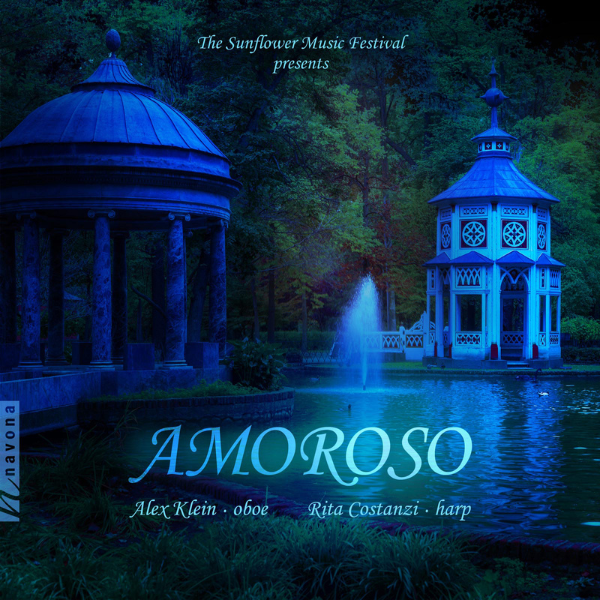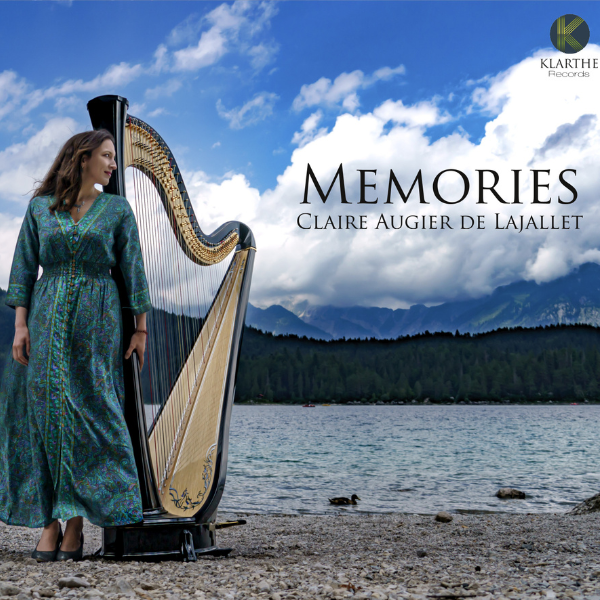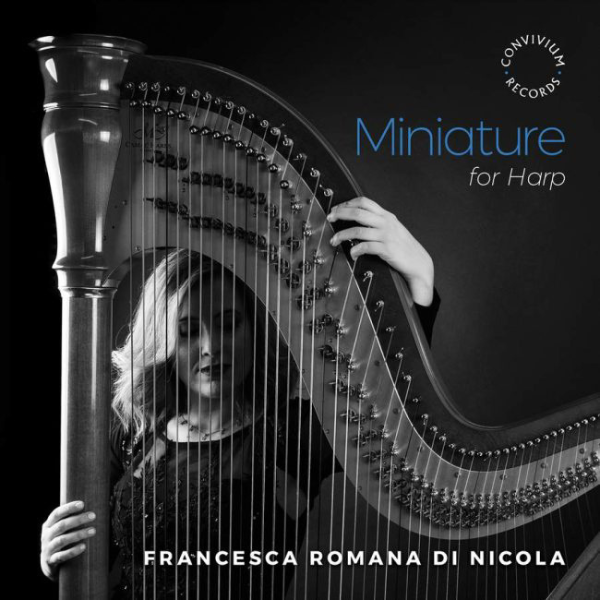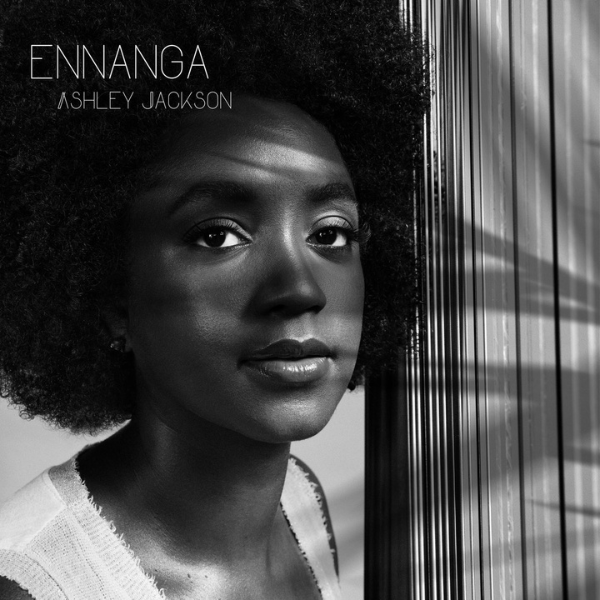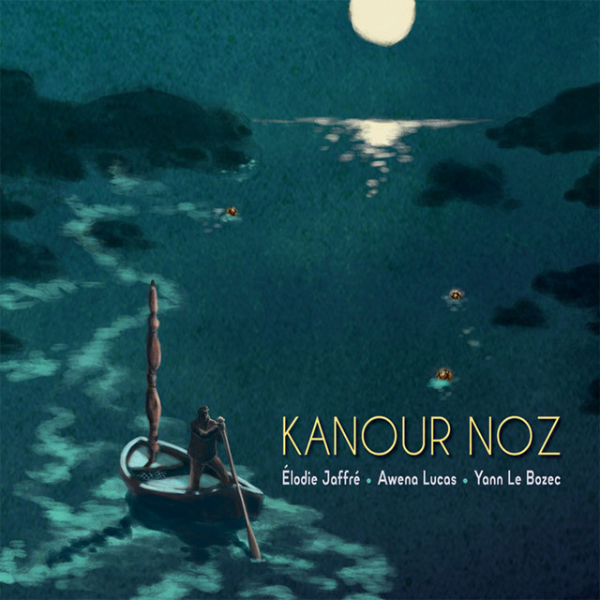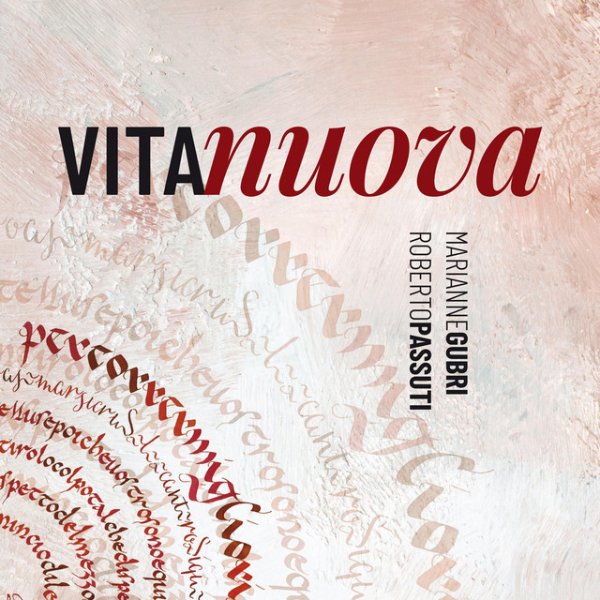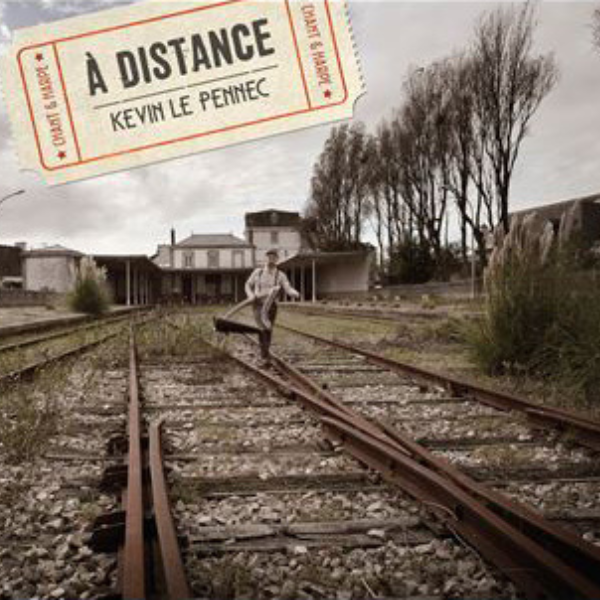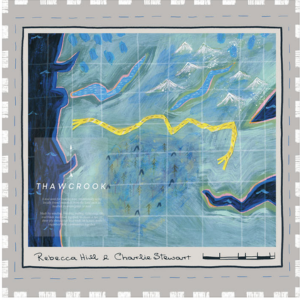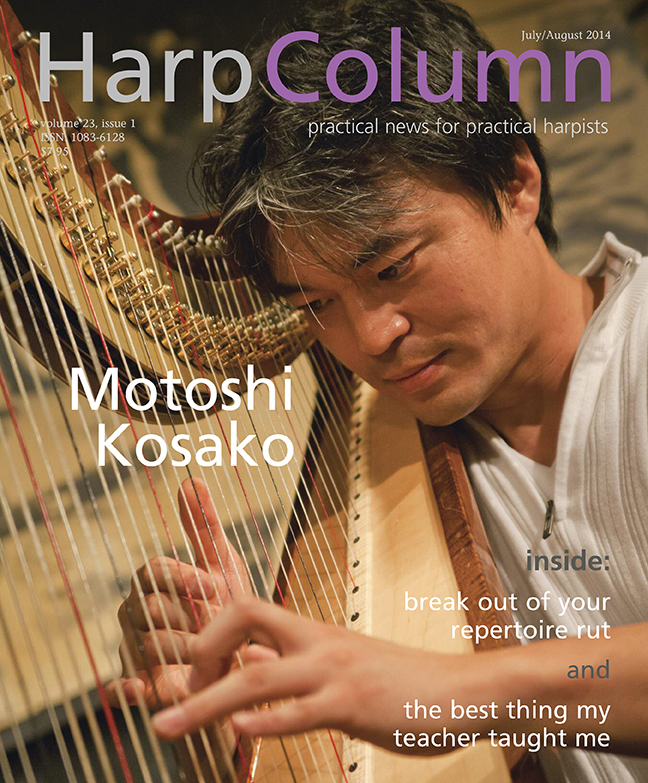
Caroline Leonardelli, Naxos, 2014
4.75 harps
(Note: recording reviews prior to 2014 were based on a 5-star system.)
How do you become a world class harpist? Practice, practice, practice.
Right, very funny, Alison. But aside from countless hours of work, there is usually a spark, an inspiration, something that grabs a young budding musician and sends her off in the direction of all that diligence.
Canadian harpist Caroline Leonardelli has been blessed with that magical moment and with a cadre of muses to help get her there. In her new disc of French music Impressions de France, she pays homage to all of them in a most tender and loving way.
It’s a narrow moment in time, a span of a little over 50 years. The double-action harp had gained traction as a legitimate instrument at the Paris Conservatory and composers, realizing it was there to stay, began writing a lot of music for this elegant giant, exploring colors and expressive capabilities to see how far they could push the new virtuosi. Caroline was a student herself at the Paris Conservatory decades after these pieces made their debuts, and her warm touch, coupled with an articulate technique, shows she paid attention in class.
But what got her to Paris in the first place was her mother, also a harpist, who befriended the great Lily Laskine. I like to imagine these formidable harpists guiding Caroline and her delight in her youthful ears hearing her own hands being able to bring this French repertoire to life. Inspiration secured, assistance in curating a series of pieces from this era came from one of Marcel Grandjany’s star pupils Kathleen Bride.
This is a French album for me like no other. Several pieces are rarely on any programs today and for no really good reason. Henri Busser’s mysterious incantation of a concert piece is reflective of his great success as an orchestrator, having arranged Debussy’s Petite Suite for symphony. Caroline gives us equal measures of grand romance and epic stature next to the gauzy indeterminate nature harpists love to revel in. Next to Grandjany’s puckish tone poem Dans la forêt du charme at de l’enchantment, the disc takes on the proportions of a well-planned recital program, the pieces responding and commenting on one another. Caroline times the revelation of characters just so, like a mother reading a fairytale to young ones.
Of great interest to me is harpist Marcel Tournier’s little gem Berceuse Negre. While there was a great flowering of the harp in music history, Tournier shrugs his shoulders and writes a perfect little piece, modal and dark, without having the harpist move a pedal. Never recorded until now is a work by the trailblazing harpist Henriette Renié. Renié knew that her harp professor Alphonse Hasselmans wanted her to succeed him at the conservatory, but instead the committee chose Tournier. The event could have contributed to Hasslemans untimely death that very day, and we can hear Renié’s lament, longing, and even resignation in this second Ballade. Caroline chooses a quiet, reflective mood underscoring the very real piety of a woman who is successful in a man’s world, though hardly in the material sense. A true find.
With thoughtfully chosen and laid-out repertoire, filled with surprises and all masterfully presented, this is a must for any serious harpist’s library.





